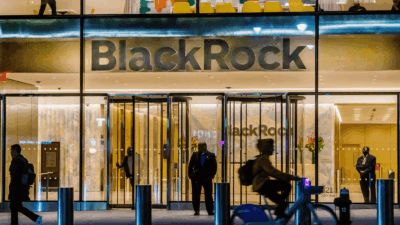Will AI Be the Next Dot-Com Bubble?
As AI continues to rake in funds despite questions about long-term profitability, some experts are calling for more diversification.

Sign up for exclusive news and analysis of the rapidly evolving ETF landscape.
Is it time for investors to slow their AI roll? Some experts think so.
OpenAI CEO Sam Altman made headlines last week when he described the AI craze as a bubble. Combined with ChatGPT-5’s botched rollout earlier this month and some signs of sliding among tech stocks, that prompted investors to question whether the AI boom is set to go bust in the near future, like the dot-com bubble of the late ’90s. Still, AI-focused ETFs continue to hit the market, with VettaFi listing 48 in its database, and expert outlooks are mixed. “I think it’s important to be aware of the risk,” said Claire Cantalupo, senior market analyst at InvesTech Research. “It doesn’t necessarily mean AI is going to crash tomorrow.”
Bubbling Up
There are a few things to look for when evaluating a possible bubble, Cantalupo said. One is a paradigm shift: a new technology or innovation leading to a surge in optimism and high valuations, with investors losing their sense of risk and reward. Another is “a universal belief that this time is different.” AI could, and probably will, change the world, she added, but it may also be causing inflated valuations that aren’t sustainable. During the dot-com boom, for example, equipment provider Cisco ranked as a major player, briefly becoming the world’s most valuable company with a market cap topping $500 billion. But it lost 90% of its value in the two years after the bubble burst in 2000. “The unfortunate reality is the top 10 companies in the S&P make up 40% of it by market capitalization,” Cantalupo said. “So investors who think they’re diversified by investing in index funds are actually far more exposed to just a small basket of stocks than they think they are.”
Other potential indicators that the AI boom is a bubble include:
- The fact that without the so-called Magnificent Seven stocks, which are predominantly tech-oriented, the S&P’s recent rally would be almost cut in half, according to a recent CNBC analysis.
- A recent MIT report finding that the vast majority of AI pilot programs, 95%, have no effect on P&L and no “rapid revenue acceleration.”
Artificially Sweet. The S&P 500 continues to climb because of a few tech stocks — Nvidia, Meta and others — with massive AI projects. The projects could lead to too much hype, said Brian Colello, senior equity analyst at Morningstar. Meta, for instance, has reportedly offered huge compensation packages to AI engineers that could lose value if the company’s stock falls. Still, Colello expressed optimism, based in part on continued demand for Nvidia’s products.
“Certainly, there will be businesses that fail to live up to lofty valuations and times where AI expands too quickly,” he said. “However, we don’t think these dynamics are plaguing the large AI leaders just yet.”











